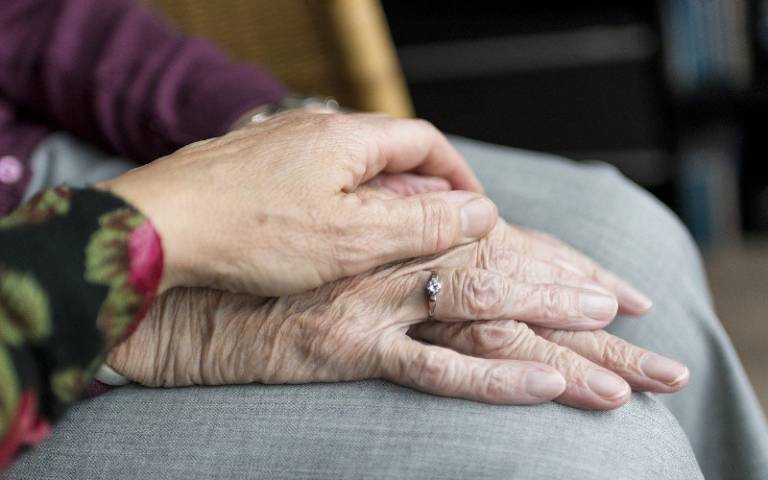Immune response in the elderly can struggle to switch off
4 May 2020
UCL researchers from the Gilroy Group (UCL Division of Medicine), in collaboration with Infection & Immunity researcher, Professor Arne Akbar, and AstraZeneca, have found that immune responses in the elderly can start normally, but struggle to switch off.

As we age, our immune system, which protects us from infection, cancer and injury, becomes less effective. But why this happens is unclear. The findings – now published in Nature Immunology – show that macrophages, immune cells that clean up organs during immune responses, had lost their ability to eat dead and dying cells. This loss of appetite causes a build-up of immunological debris that can prevent proper wound healing and drive autoimmunity.
The researchers discovered that a molecule called p38, an important regulator of cell function, was perpetually activated in macrophages from older people rendering them less able to eat. They went on to administer losmapimod - a drug provided by GlaxoSmithKline - targeting p38 to elderly individuals. This resulted in improved macrophage function allowing immunological debris to be cleared and ultimately rejuvenating the immune response in the elderly.
This is the first time researchers have successfully reversed a novel defect in resolution biology, highlighting the tractability of targeting immune resolution to treat autoimmunity and chronic inflammatory conditions. Professor Gilroy adds: “Our findings help to explain why immune responses take longer to heal in older people. The immediate application of these findings and our next programme of research is to investigate the use of p38 inhibitors to accelerate delayed wound healing, a common complication of old age. Additionally, we think targeting p38 in wound healing has merit in diseases such as cancer and metabolic diseases. We are excited to explore this further.”
Links
- Read the paper: Blocking elevated p38 MAPK restores efferocytosis and inflammatory resolution in the elderly (Nature Immunology)
- Profile: Professor Arne Akbar
- Twitter: @akbarlab
- Profile: Professor Derek Gilroy
- UCL Division of Medicine
 Close
Close

